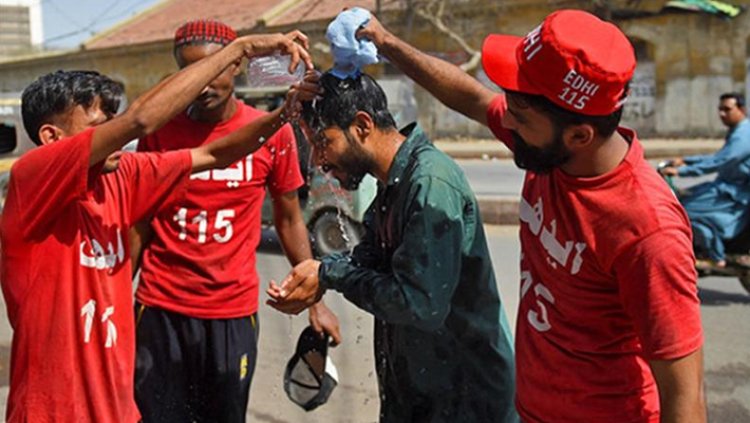Heatwave: Schools Shut, Hospitals on Alert as Pakistan’s Temperature Reaches 50 Degrees
This heatwave, the first of the summer for Pakistan, follows recent heavy rains and flash floods that resulted in over 100 fatalities, highlighting the country’s vulnerability to erratic weather patterns.

Pakistan has ordered the closure of schools, postponed exams, and placed hospitals on high alert as a severe heatwave grips the nation, with temperatures expected to exceed 50 degrees Celsius. Officials reported on Tuesday that temperatures could rise up to eight degrees Celsius above normal levels.
This heatwave, the first of the summer for Pakistan, follows recent heavy rains and flash floods that resulted in over 100 fatalities, highlighting the country’s vulnerability to erratic weather patterns.
READ ALSO:Young Man Works as Gateman to Pay School Fees, Graduates with 17 Distinctions in Education
Sardar Sarfraz, Pakistan’s chief meteorologist, indicated that daytime temperatures in some southern and southwestern regions could surpass 50 degrees Celsius during the week-long heatwave. This marks the third consecutive year that temperatures have breached this dangerous threshold, posing significant risks to both humans and livestock.
In response, provincial education minister Rana Sikander announced that schools in Punjab province will remain closed until May 31 to protect children from the extreme heat. Additionally, Chief Minister Maryam Nawaz stated that hospitals in the densely populated province have been instructed to prepare for an influx of heat-related cases.
In Sindh province, regional minister Sharjeel Memon confirmed that all exams scheduled for this week have been postponed to next week when the heatwave is expected to subside.Authorities in the northern mountainous regions are also on alert, preparing for potential glacial lake outburst floods (GLOF) triggered by the heatwave in the Himalayas, Karakoram, and Hindukush ranges.
Climate-induced incidents claim hundreds of lives annually in Pakistan, and thousands lose their homes and livelihoods, despite the country's minimal contribution to global carbon emissions, according to official statistics.





